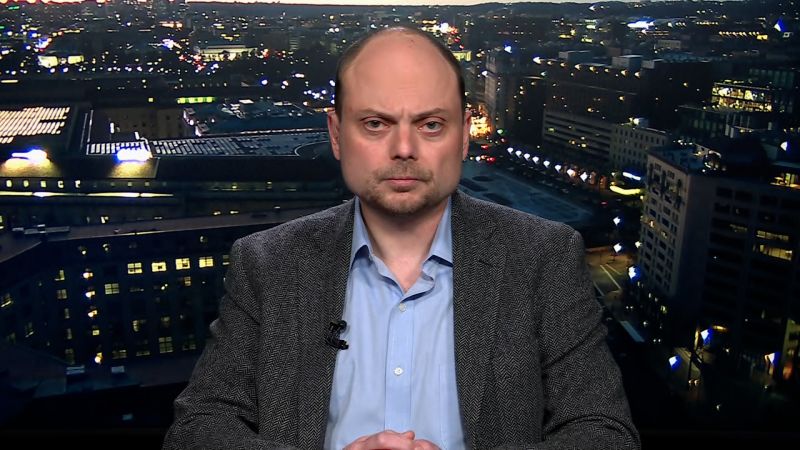The AfD: A Deep Dive Into Germany's Rising Far-Right Movement

Table of Contents
The AfD: A Deep Dive into Germany's Rising Far-Right Movement
BERLIN – The Alternative for Germany (AfD), once a fringe political party, has solidified its position as a major force in German politics, raising concerns about the resurgence of far-right extremism in the heart of Europe. Its rise reflects a complex interplay of socioeconomic anxieties, immigration debates, and a growing dissatisfaction with the established political order. Understanding the AfD requires examining its trajectory, ideology, and impact on German society.
The AfD's origins trace back to 2013, founded by academics and economists primarily concerned with Germany's response to the Eurozone crisis and its perceived economic mismanagement. Initially, the party focused on Euroscepticism, advocating for a return to the Deutschmark and criticizing the European Union's fiscal policies. However, its platform quickly evolved, incorporating increasingly anti-immigrant and nationalist rhetoric. The influx of refugees to Germany in 2015, following the Syrian civil war, proved to be a pivotal moment, catapulting the AfD into the national spotlight. Exploiting public anxieties surrounding integration and security, the party harnessed resentment towards Chancellor Angela Merkel's open-door refugee policy, gaining significant support from voters who felt their concerns were being ignored by mainstream parties.
The AfD's electoral success has been remarkable. In the 2017 federal election, it secured 12.6% of the vote, becoming the third-largest party in the Bundestag, the German parliament. This marked a significant breakthrough for a party that had previously operated on the margins of German politics. While its vote share has fluctuated slightly in subsequent elections, the AfD remains a powerful presence in state parliaments across Germany, holding significant influence in regional politics and consistently polling above 10%. In the 2021 federal election, it won 10.3% of the vote, maintaining its position as a major opposition party. Its success is not uniformly distributed across Germany; it enjoys stronger support in the former East Germany, where economic disparities and feelings of neglect are more pronounced.
The party's ideology is a complex blend of Euroscepticism, nationalism, and anti-immigration sentiment. While the AfD formally rejects extremism, its rhetoric and actions have been widely criticized for bordering on, or even crossing into, far-right territory. The party has faced numerous internal power struggles and factionalism, with several prominent figures being expelled for openly espousing racist or antisemitic views. The party leadership has attempted to project a more moderate image in recent years, but accusations of dog-whistle politics and coded language aimed at targeting minority groups persist. Furthermore, the AfD's close ties to far-right extremist groups and individuals continue to raise concerns among political analysts and civil society organizations.
The AfD's impact on German politics has been profound. It has shifted the Overton window, forcing mainstream parties to grapple with issues of immigration and national identity in ways they had previously avoided. Its presence has also led to increased polarization and fostered a more combative political climate. The party's success has challenged Germany's post-war consensus on issues of multiculturalism and tolerance, sparking intense public debate and raising concerns about the potential erosion of democratic norms.
The future of the AfD remains uncertain. While its electoral success has been undeniable, the party continues to struggle with internal divisions and negative perceptions amongst a significant portion of the population. Nevertheless, its enduring presence in German politics highlights the persistent anxieties and fault lines within German society, reminding observers of the fragility of democratic institutions and the constant need to address underlying social and economic inequalities. Whether the AfD can moderate its image, broaden its appeal, or continue its rise as a major political player remains a crucial question for Germany and Europe. The ongoing debate surrounding the AfD underscores the importance of vigilance and a continued commitment to democratic values in the face of rising populist and far-right movements.

Featured Posts
-
 Vatican Reports Pope Francis Had Peaceful Night Condition Still Serious
Feb 25, 2025
Vatican Reports Pope Francis Had Peaceful Night Condition Still Serious
Feb 25, 2025 -
 Ukraine Under Pressure From Us To Rewrite Russia Condemnation Resolution
Feb 25, 2025
Ukraine Under Pressure From Us To Rewrite Russia Condemnation Resolution
Feb 25, 2025 -
 Beauty Spot Parking In The Peak District Tips And Traps
Feb 25, 2025
Beauty Spot Parking In The Peak District Tips And Traps
Feb 25, 2025 -
 Remembering Lockerbie Sculpture Honors Mothers Who Lost Children In The 1988 Tragedy
Feb 25, 2025
Remembering Lockerbie Sculpture Honors Mothers Who Lost Children In The 1988 Tragedy
Feb 25, 2025 -
 U S Pushes Ukraine To Rewrite Un Resolution Condemning Russia
Feb 25, 2025
U S Pushes Ukraine To Rewrite Un Resolution Condemning Russia
Feb 25, 2025
Latest Posts
-
 Europe Seeks Stronger Ties With Us As Trump Meets Macron
Feb 25, 2025
Europe Seeks Stronger Ties With Us As Trump Meets Macron
Feb 25, 2025 -
 Sag Awards Complete List Of Winners Including Moore Chalamet And Conclave
Feb 25, 2025
Sag Awards Complete List Of Winners Including Moore Chalamet And Conclave
Feb 25, 2025 -
 Russian Opposition Politician Challenges Narrative On Us Role In Ukraine
Feb 25, 2025
Russian Opposition Politician Challenges Narrative On Us Role In Ukraine
Feb 25, 2025 -
 The Impact Of Russias Invasion An Analysis Of The Changing Ukraine U S Political Ties
Feb 25, 2025
The Impact Of Russias Invasion An Analysis Of The Changing Ukraine U S Political Ties
Feb 25, 2025 -
 Ukraine U S And Russia A Shifting Political Landscape After Three Years Of War
Feb 25, 2025
Ukraine U S And Russia A Shifting Political Landscape After Three Years Of War
Feb 25, 2025
